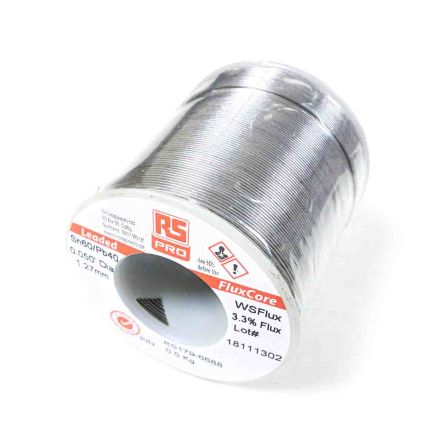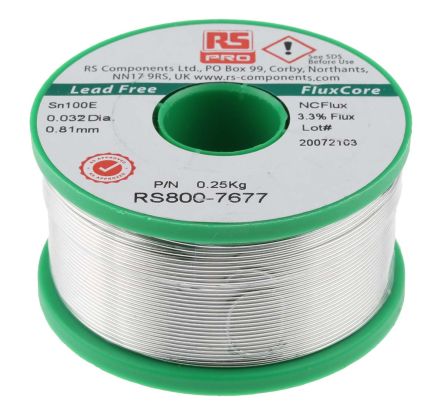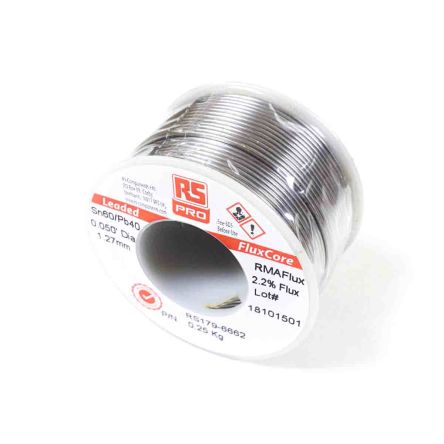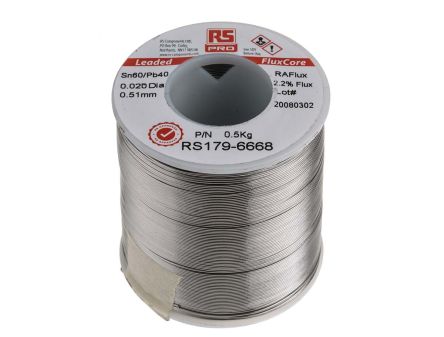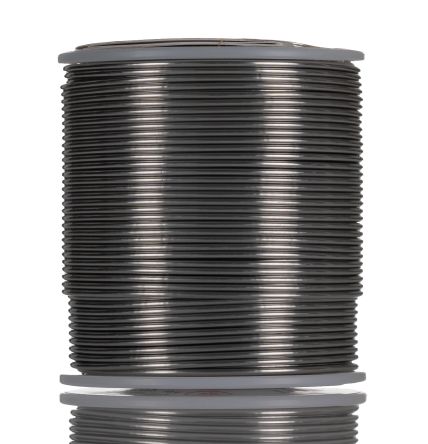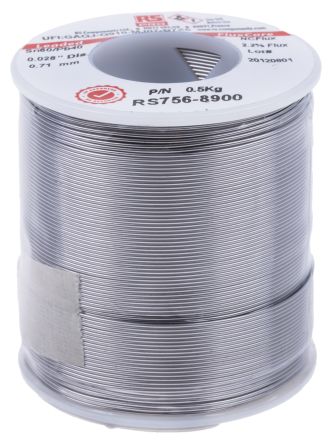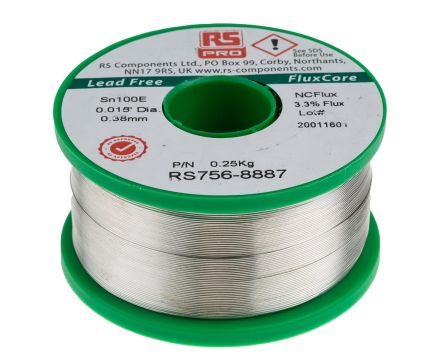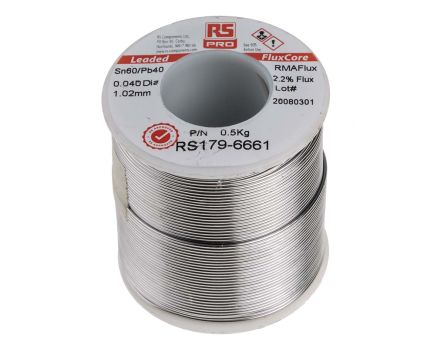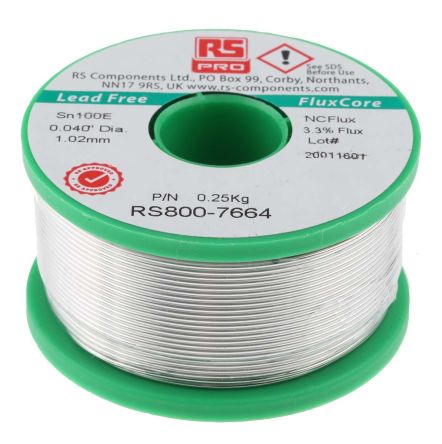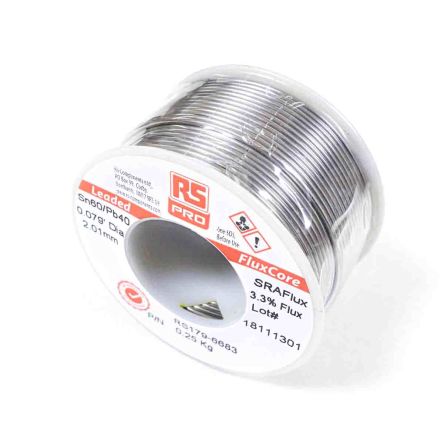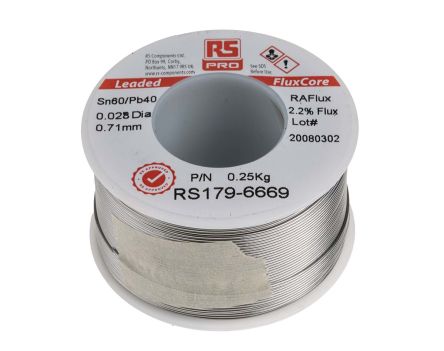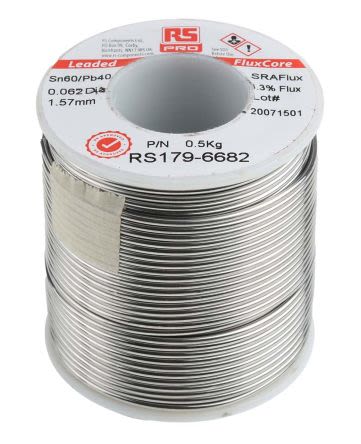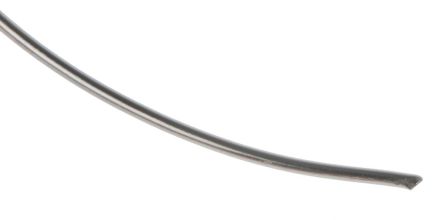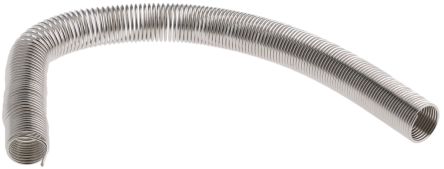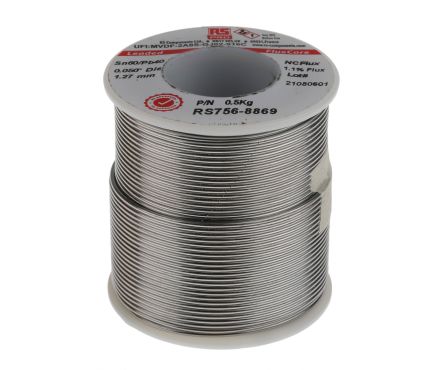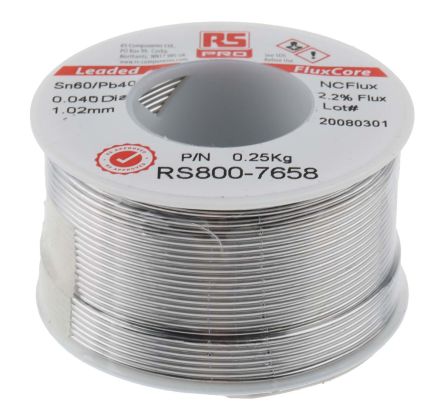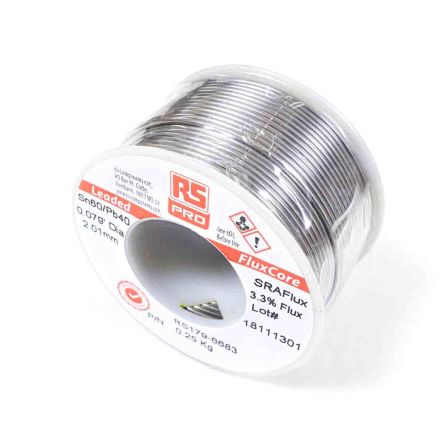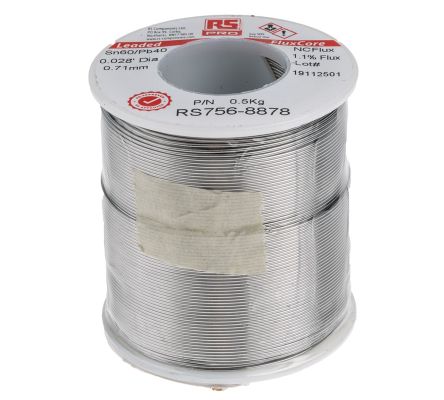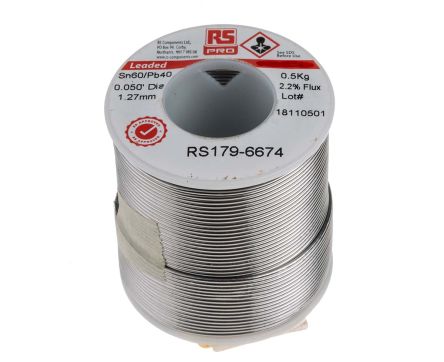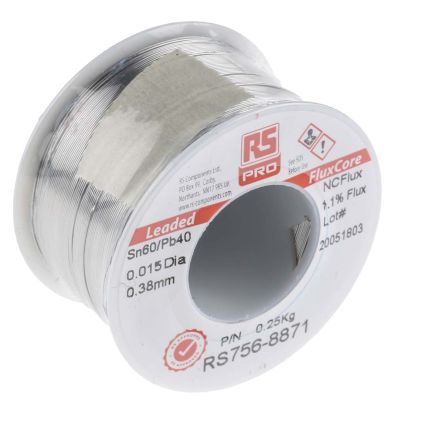- Automation & Control Gear
- Cables & Wires
- Enclosures & Server Racks
- Fuses & Circuit Breakers
- HVAC, Fans & Thermal Management
- Lighting
- Relays & Signal Conditioning
- Switches
- Batteries & Chargers
- Connectors
- Displays & Optoelectronics
- ESD Control, Cleanroom & PCB Prototyping
- Passive Components
- Power Supplies & Transformers
- Raspberry Pi, Arduino, ROCK, STEM Education & Development Tools
- Semiconductors
Solder
Solder, or solder wire, is a fusible metal alloy with a low melting point used to permanently join two metals that have a higher melting point. Soldering is a process commonly used in the electronics industry for printed circuit boards (PCBs) and electronics components, jewellery manufacturing and pipework in plumbing, with the majority of soldering carried out through the use of a soldering iron.
What Is Solder Made of?
The alloys used in solder vary depending on the manufacturer and the intended application, as different applications require different materials.
Soft Solders
Soft solder is commercially available at varying concentrations of tin, ranging from 5% to 70%. Higher percentages of tin provide greater tensile strength, with a 60/40 balance being a popular composition.
Lead-free Solders
Lead-free solder was created due to the call to remove or reduce hazardous materials in consumer electronics, which often have a lower melting point than lead-based alloys. Lead-free solder wire may contain copper, zinc, tin, silver, bismuth, antimony and/or traces of other materials depending on its intended use.
Different Forms of Solders
Solder is available in various forms to suit different applications:
- Wire Solder: This is the most common form, available in a range of diameters to accommodate different joint sizes and soldering techniques.
- Solder Granules: These small pellets of solder are often used in soldering machines and tinning crucibles, but are also popular for jewellery making.
- Paste Solder: This is a viscous paste containing solder particles and flux, commonly used in surface mount technology (SMT) and printed circuit board assembly.
What Is Flux?
In order to prevent the oxidation of the metal alloy and ensure a strong electrical connection and high mechanical strength, soldering wire contains a flux. A flux is a chemical agent that will help to reduce metal oxides (return oxidised metals to their original state) and seal out air from the join, preventing any further oxidation.
There are two main types of flux: acid/active, which contains strong acids and is used in plumbing and metal mending, and rosin/passive, which is used in electronics.
Benefits of Solders
Soldering offers several benefits in electronics and other applications:
Strong Electrical Connections
Solder creates strong electrical connections between components, ensuring efficient current flow and signal transmission.
Mechanical Strength
Solder joints provide mechanical strength, holding components together securely and preventing movement or separation.
Corrosion Resistance
Solder alloys are often formulated to resist corrosion, protecting the joint from environmental factors and ensuring long-term reliability.
Solders Applications
Solder is used in a wide range of applications, including:
- Electronics Manufacturing: Soldering is essential for assembling electronic components onto PCBs, creating the intricate connections that power our electronic devices.
- Plumbing: Solder is used to join copper pipes and fittings in plumbing systems, creating leak-proof connections.
- Jewellery Making: Solder is used to join pieces of metal together in jewellery creation, enabling intricate designs and durable pieces.
- Automotive Industry: Solder is used in various automotive applications, including wiring harnesses, sensors, and electrical connections.
- Repair and Maintenance: Solder is a valuable tool for repairing and maintaining various metal objects, from electronics to household appliances.
How to Choose the Right Solder Wire
Selecting the appropriate solder wire depends on several factors, including the application, the metals being joined, and the desired melting point. Consider the specific requirements of your project and choose a solder that meets those needs. RS Hong Kong offers a wide variety of solder wires to cater to diverse applications, ensuring you find the perfect solution for your soldering needs.
How to Order Solder Wires from RS Hong Kong?
RS Hong Kong is a trusted supplier of solder wires, offering a comprehensive selection from reputable brands like Weller, MBO, and Multicore, with a variety of soft and lead-free solder wire diameters (ranging from 0.23mm to 7mm) and lead content (0% to 70%). Our online platform provides a seamless ordering experience, allowing you to easily browse our product range, compare specifications, and place your order with just a few clicks.
Besides solder wires, we also provide other essential components like junction boxes and terminal blocks for your industrial needs.
How Delivery Works at RS Hong Kong
RS Hong Kong offers reliable and efficient delivery services to ensure your orders reach you promptly. We provide various delivery options, including standard delivery and express delivery, allowing you to choose the service that best suits your requirements. Our online platform provides real-time tracking information, enabling you to monitor your order's progress from dispatch to delivery. Learn more by visiting our delivery information page. Solder, or solder wire, is a fusible metal alloy with a low melting point used to permanently join two metals that have a higher melting point. Soldering is a process commonly used in the electronics industry for printed circuit boards (PCBs) and electronics components, jewellery manufacturing and pipework in plumbing, with the majority of soldering carried out through the use of a soldering iron.
